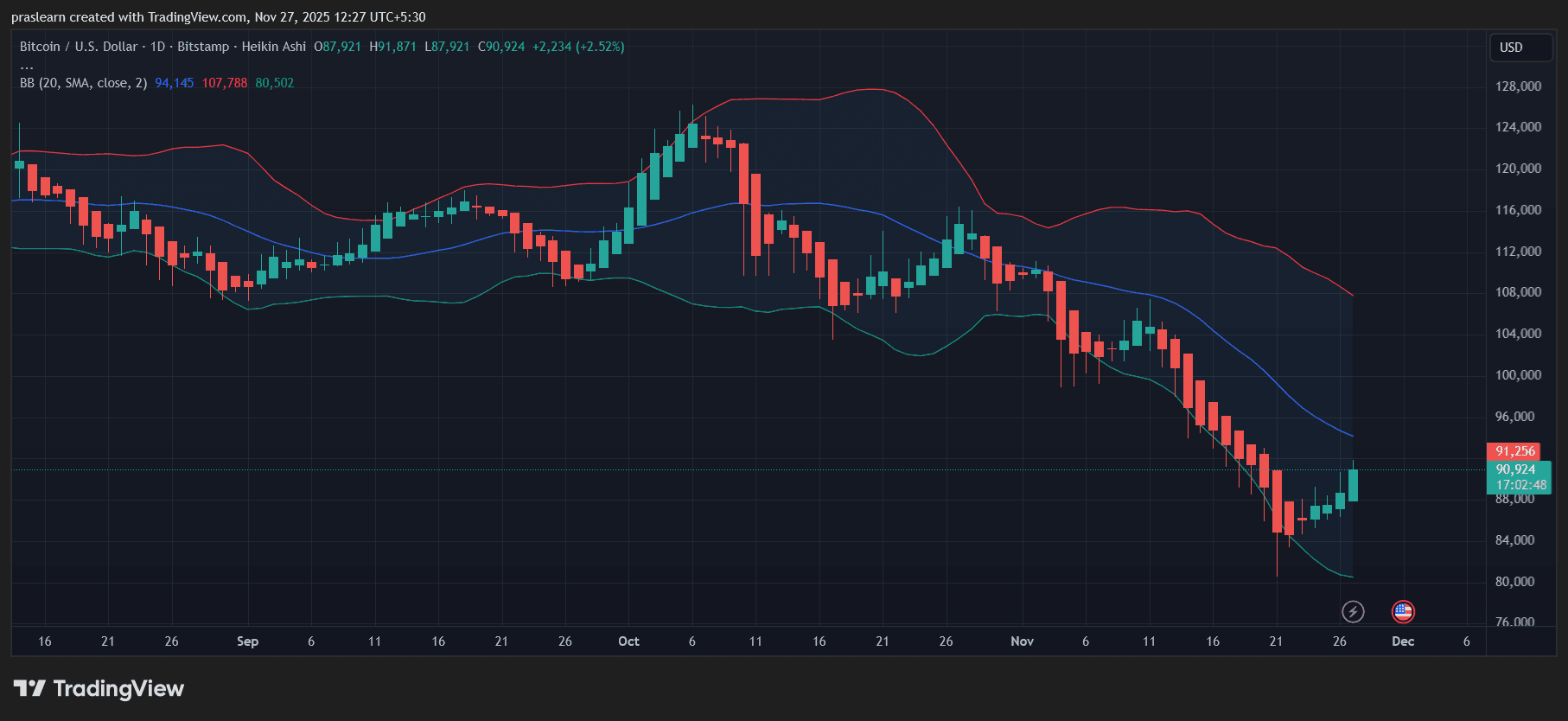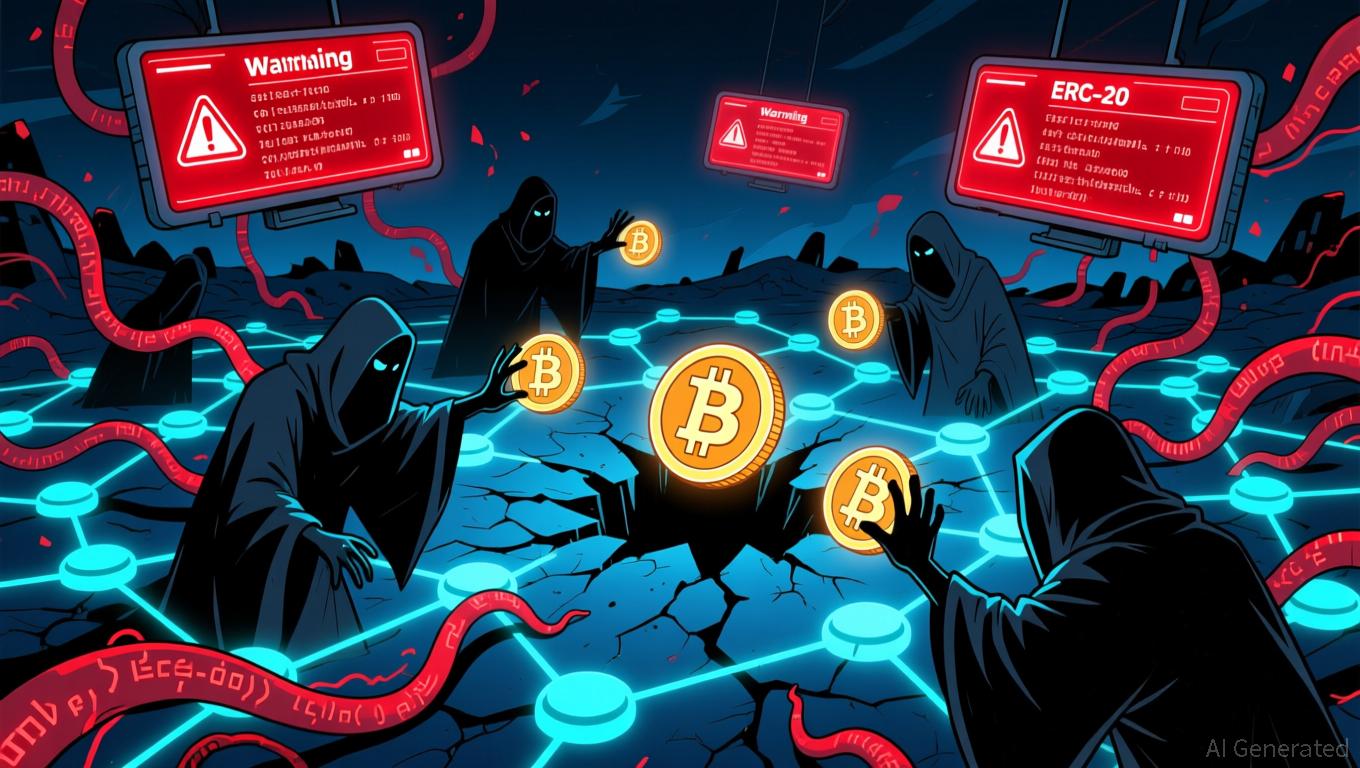Spain’s Revamp of Crypto Tax Laws May Spark Market Turmoil, Opponents Caution
- Spain's Sumar group proposed crypto tax hikes to 47% and a risk "traffic light" system for platforms in November 2025. - The plan introduces dual taxation for individuals/businesses and expands seizable crypto assets beyond EU MiCA rules. - Experts warn of legal challenges, market instability, and "absolute chaos" if the reforms create compliance burdens for investors. - Critics argue the measures could deter crypto adoption, drive activity underground, and destabilize Spain's emerging crypto sector.
The Sumar Parliamentary Group in Spain has put forward extensive changes to the nation's cryptocurrency tax regulations, igniting discussions about how these adjustments might influence both the digital asset market and investor actions. Unveiled in November 2025, the proposals seek to move crypto earnings into higher tax categories and introduce new oversight tools, including a risk "traffic light" indicator for crypto service providers.

A further amendment would require the National Securities Market Commission (CNMV) to introduce a visual "traffic light" risk rating on crypto platforms. This system would categorize digital assets based on criteria such as regulatory compliance, liquidity, and asset backing, offering investors a clear, color-coded risk assessment.
Economist José Antonio Bravo Mateu and legal specialist Chris Carrascosa have both expressed reservations about the new measures. Bravo Mateu argued that the changes "are clearly detrimental to
Spain’s present crypto tax regime, which treats digital asset gains as savings income taxed up to 30%, has faced criticism for being out of step with current realities. Raising the IRPF rate to 47% would place crypto earnings in the same bracket as top income earners, potentially draining liquidity from the sector. At the same time,
These legislative efforts arrive as Spain grapples with wider economic issues, such as job reductions at Telefónica and unstable performance among small-cap stocks. Nonetheless, the crypto-focused amendments have attracted particular attention due to their potential to unsettle a rapidly developing industry.
Disclaimer: The content of this article solely reflects the author's opinion and does not represent the platform in any capacity. This article is not intended to serve as a reference for making investment decisions.
You may also like
Bitget Wallet Introduces Zero-Fee Feature for Its Crypto Card in Over 50 Markets
Are Big Changes in Store for the Bitcoin Price?

Secure Blockchain, Misleading Agreements: Spoofing Incidents Increase on Monad
- Monad's mainnet faces spoofing attacks as scammers use smart contracts to mimic ERC-20 token transfers, misleading users with fake logs. - Co-founder James Hunsaker clarifies the network remains secure, but external contracts exploit EVM openness to create deceptive transactions. - Over 76,000 wallets claimed MON tokens in airdrop, creating high-traffic conditions that attackers leverage through fabricated swaps and signatures. - Security experts warn users to verify contract sources and avoid urgent pro

Bitcoin Latest Updates: Worldwide Regulatory Changes and Major Investors Propel Bitcoin and Brazil's Markets Upward
- Bitcoin surged to $91,500 amid institutional adoption, Fed rate cut expectations, and post-halving rebound, despite $3.79B ETF outflows and inherent volatility. - Brazil's stock market hit records after tax reforms exempted low-income households, aligning with global redistributive policies and boosting 15 million earners. - Binance delisted BTC pairs like GMT/BTC for regulatory compliance, while on-chain metrics signaled crypto market consolidation and mixed altcoin prospects. - Global macro risks persi